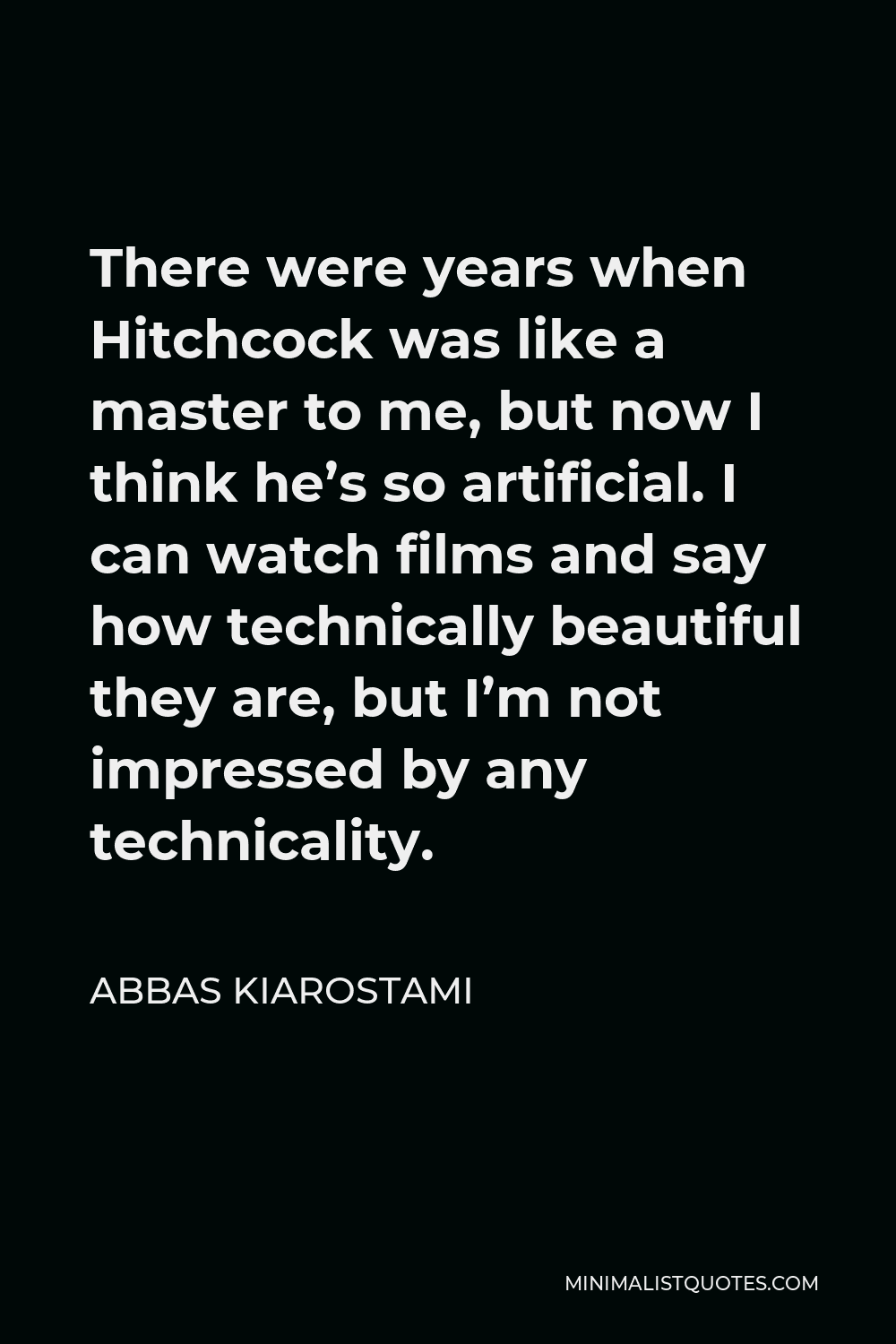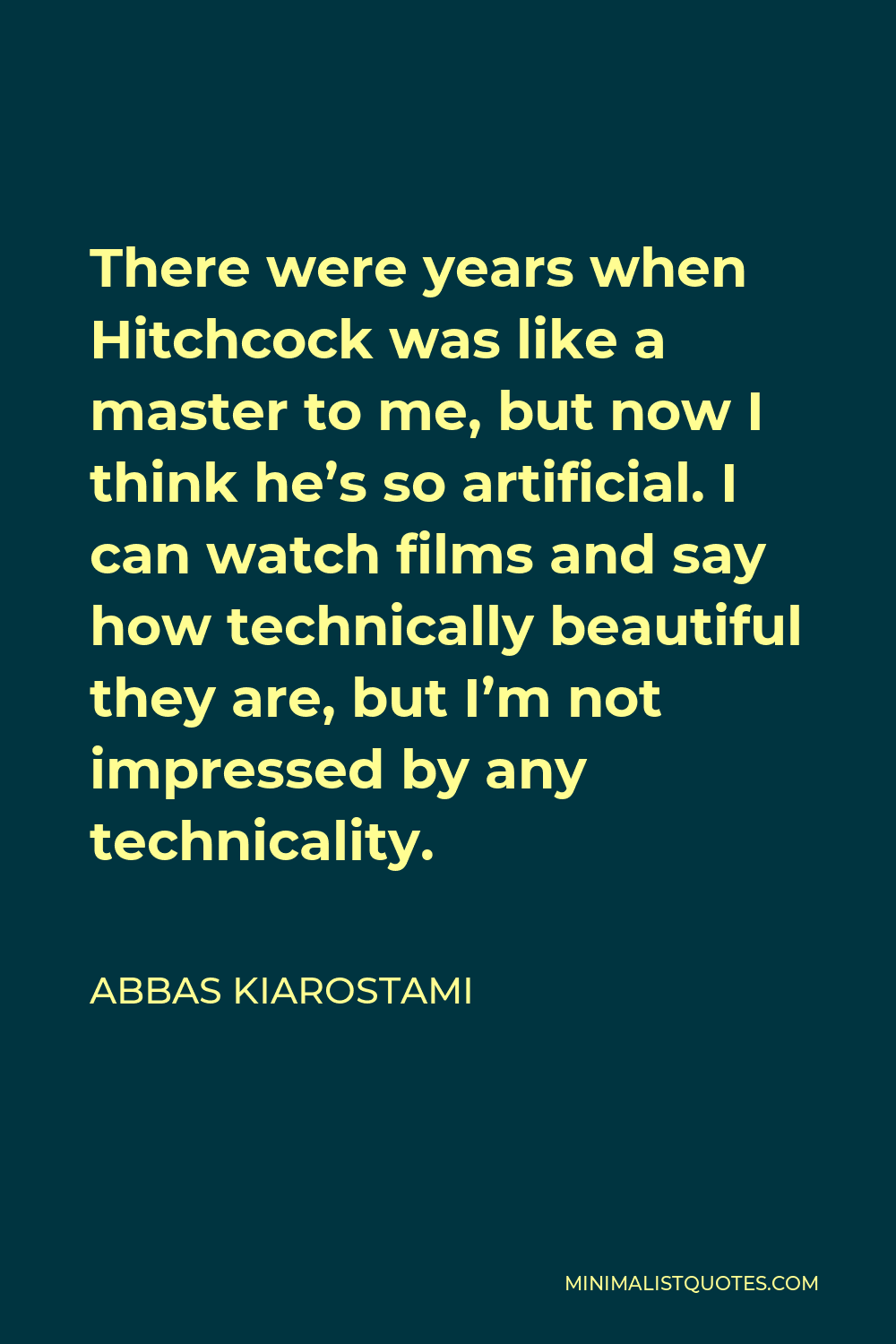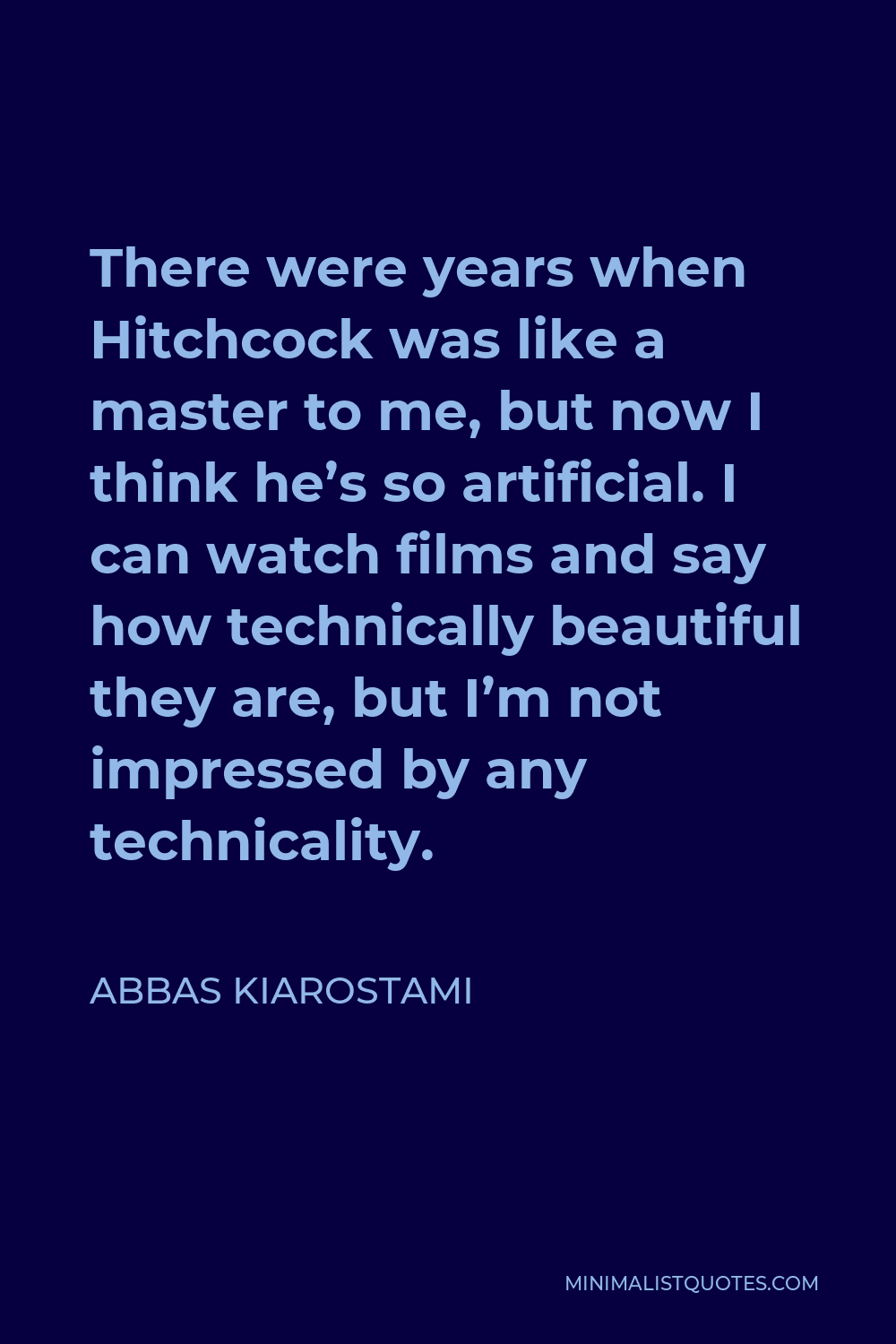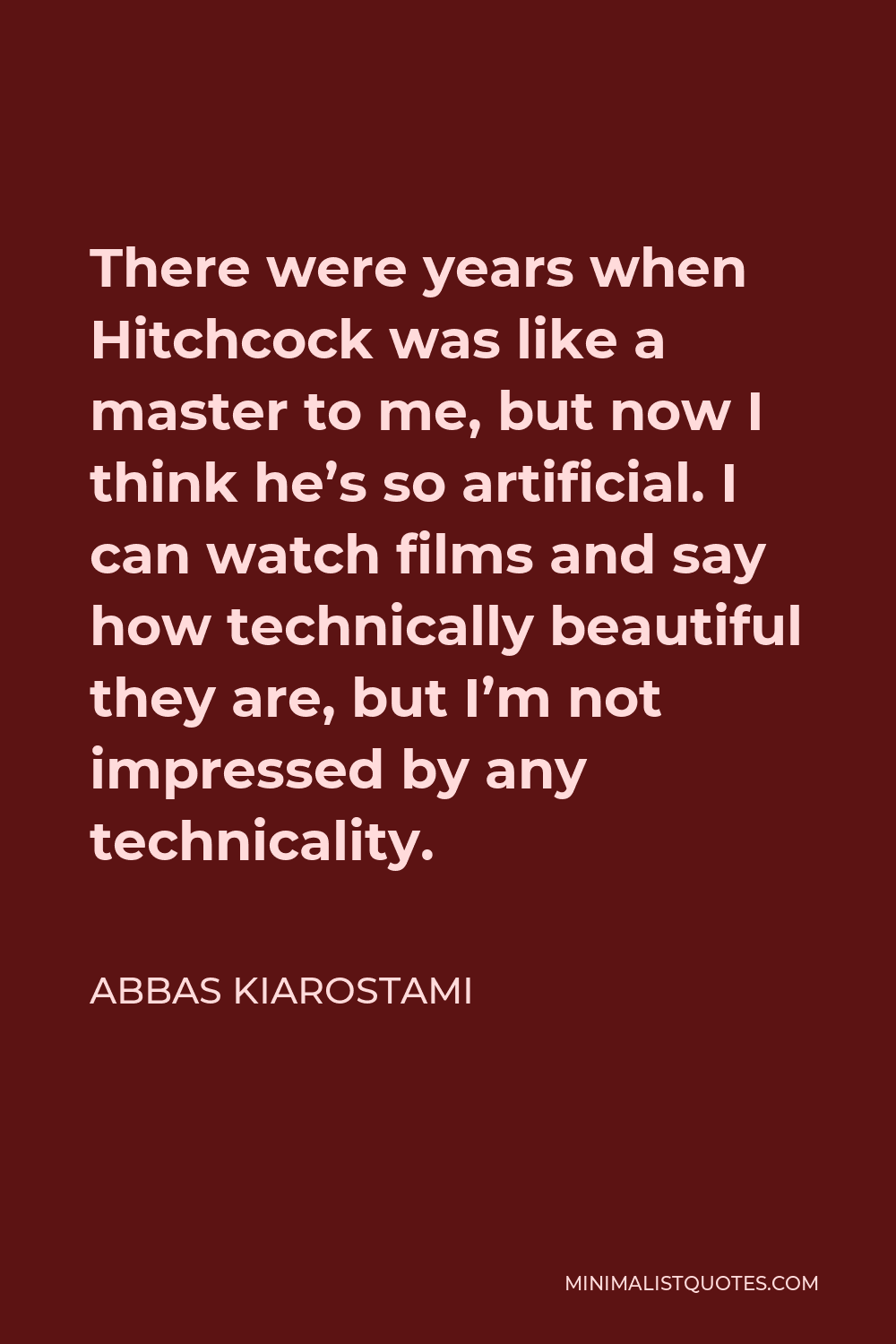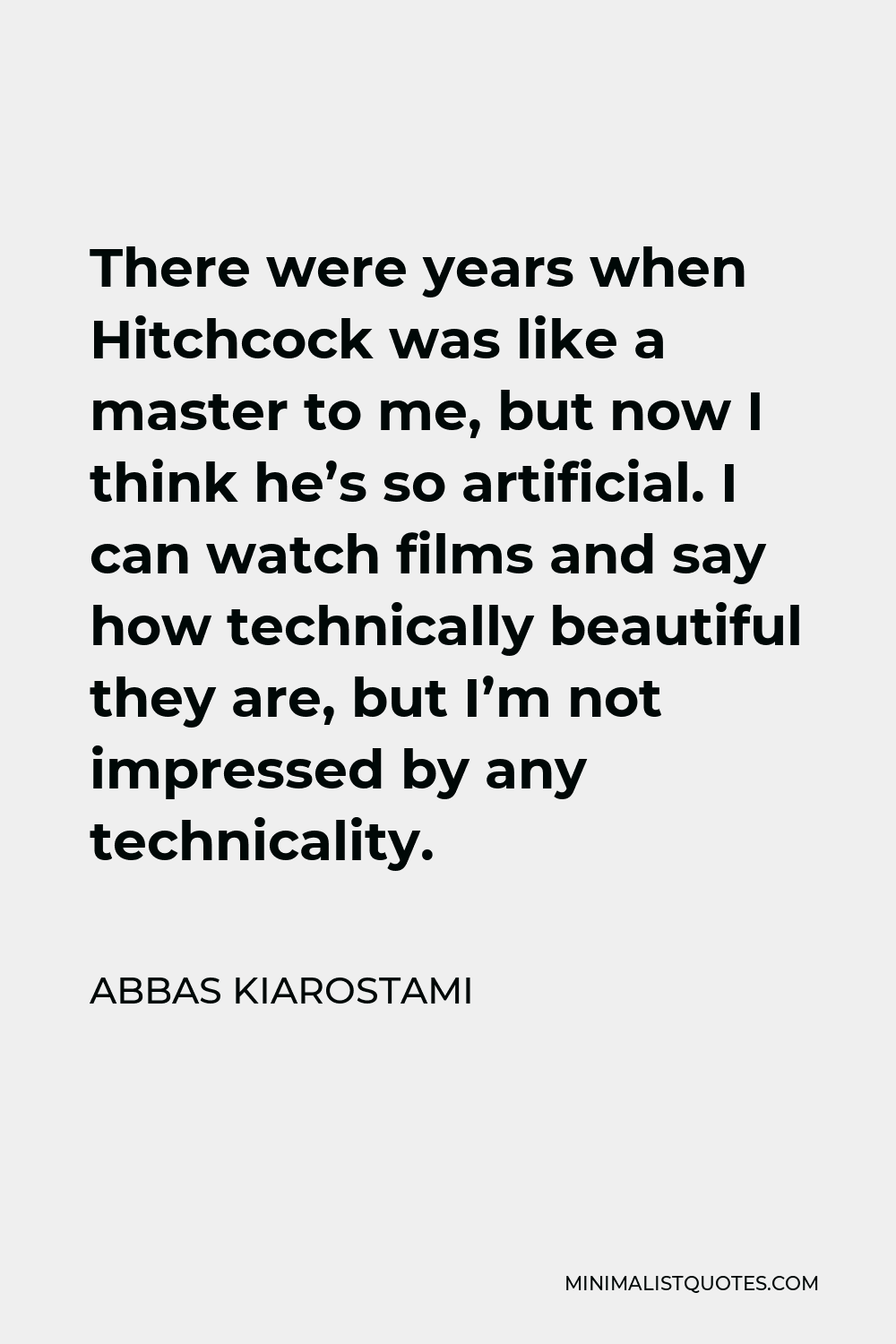I’ve often noticed that we are not able to look at what we have in front of us, unless it’s inside a frame.
ABBAS KIAROSTAMIThere were years when Hitchcock was like a master to me, but now I think he’s so artificial. I can watch films and say how technically beautiful they are, but I’m not impressed by any technicality.
More Abbas Kiarostami Quotes
-





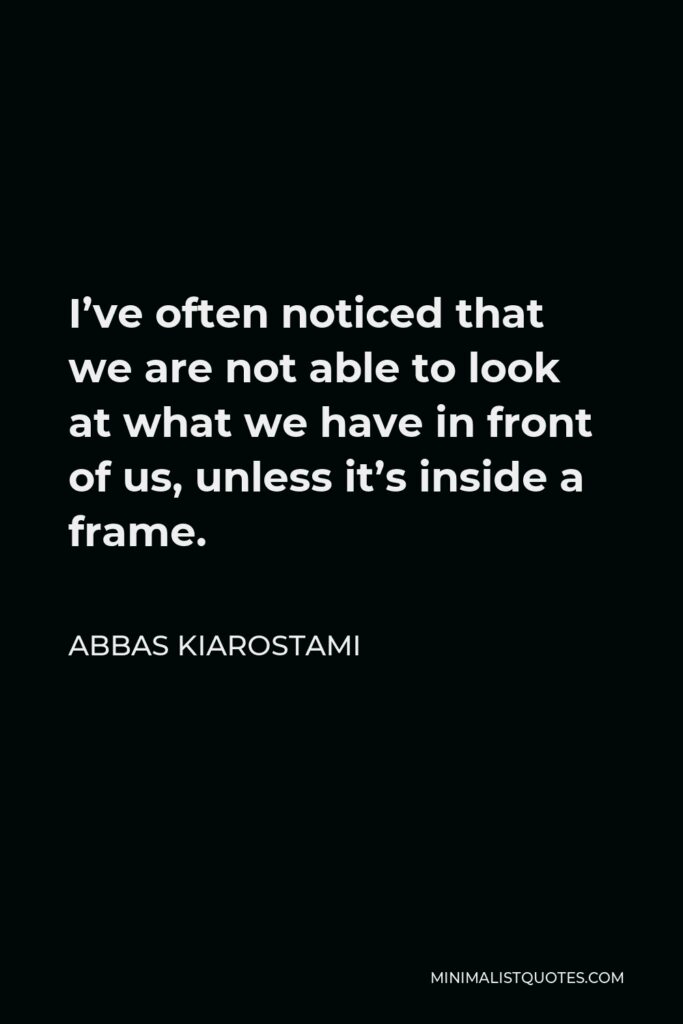

-





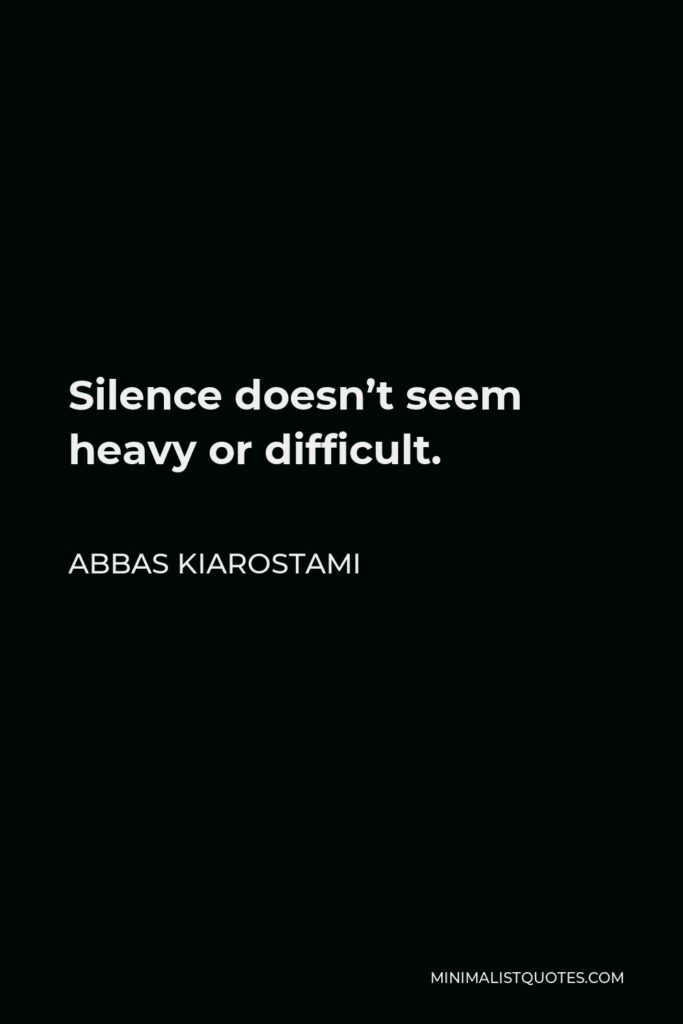

Silence doesn’t seem heavy or difficult.
ABBAS KIAROSTAMI -





![Abbas Kiarostami Quote - I didn’t just see myself as a film director here [in Life And Nothing More], but also as an observer of people who had been condemned to death.](https://minimalistquotes.com/wp-content/uploads/2022/04/i-didnt-just-see-myself-as-a-film-director-here-in-683x1024.jpg)

I didn’t just see myself as a film director here [in Life And Nothing More], but also as an observer of people who had been condemned to death.
ABBAS KIAROSTAMI -





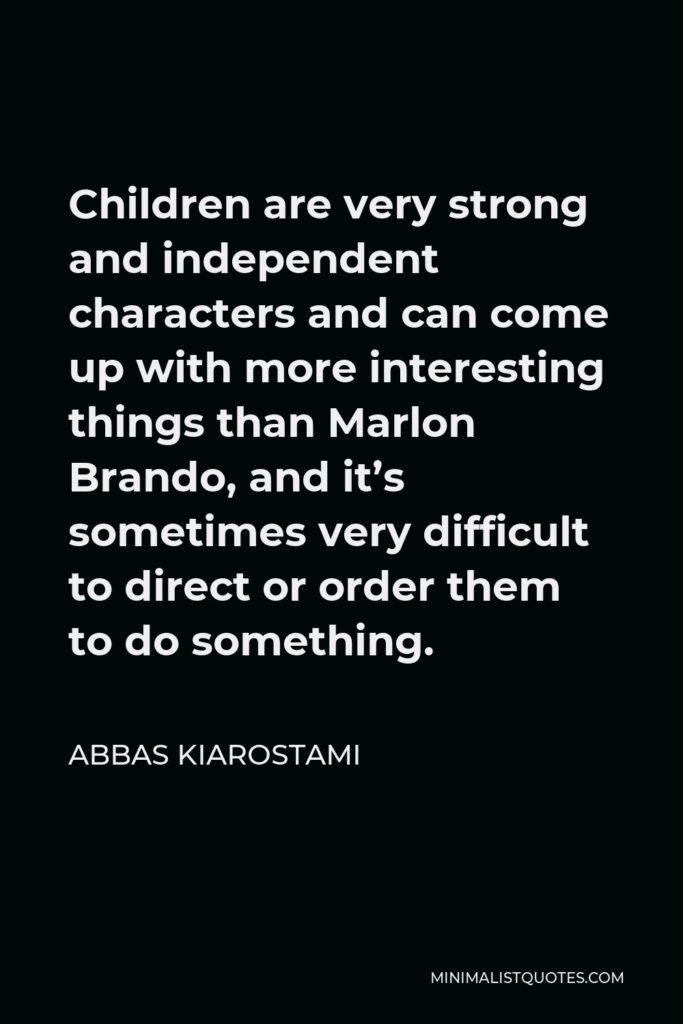

Children are very strong and independent characters and can come up with more interesting things than Marlon Brando, and it’s sometimes very difficult to direct or order them to do something.
ABBAS KIAROSTAMI -





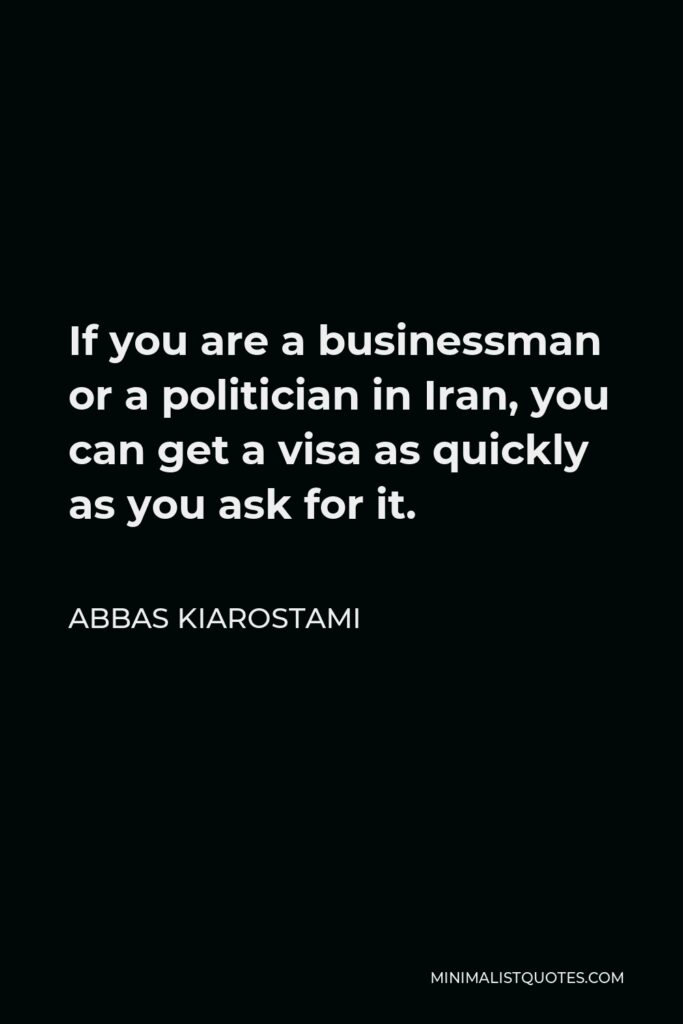

If you are a businessman or a politician in Iran, you can get a visa as quickly as you ask for it.
ABBAS KIAROSTAMI -





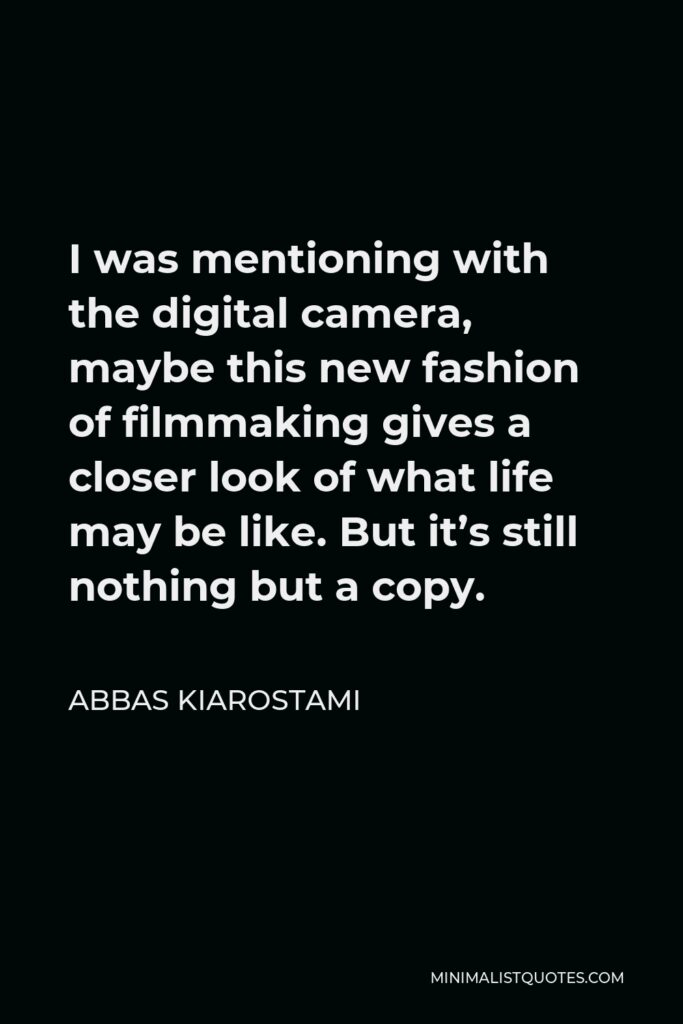

I was mentioning with the digital camera, maybe this new fashion of filmmaking gives a closer look of what life may be like. But it’s still nothing but a copy.
ABBAS KIAROSTAMI -





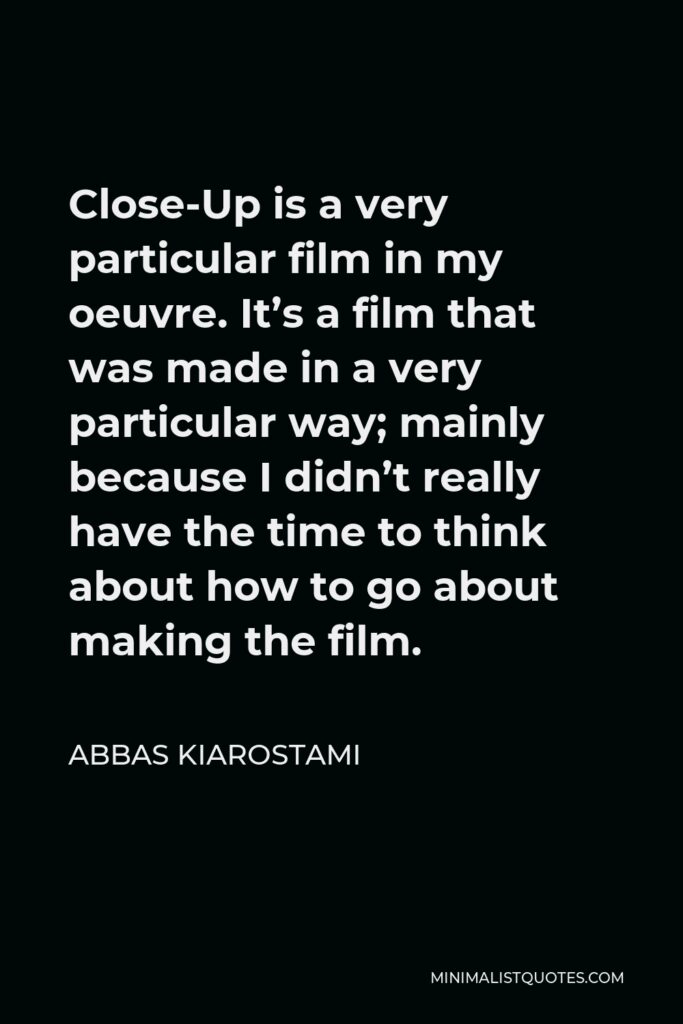

Close-Up is a very particular film in my oeuvre. It’s a film that was made in a very particular way; mainly because I didn’t really have the time to think about how to go about making the film.
ABBAS KIAROSTAMI -





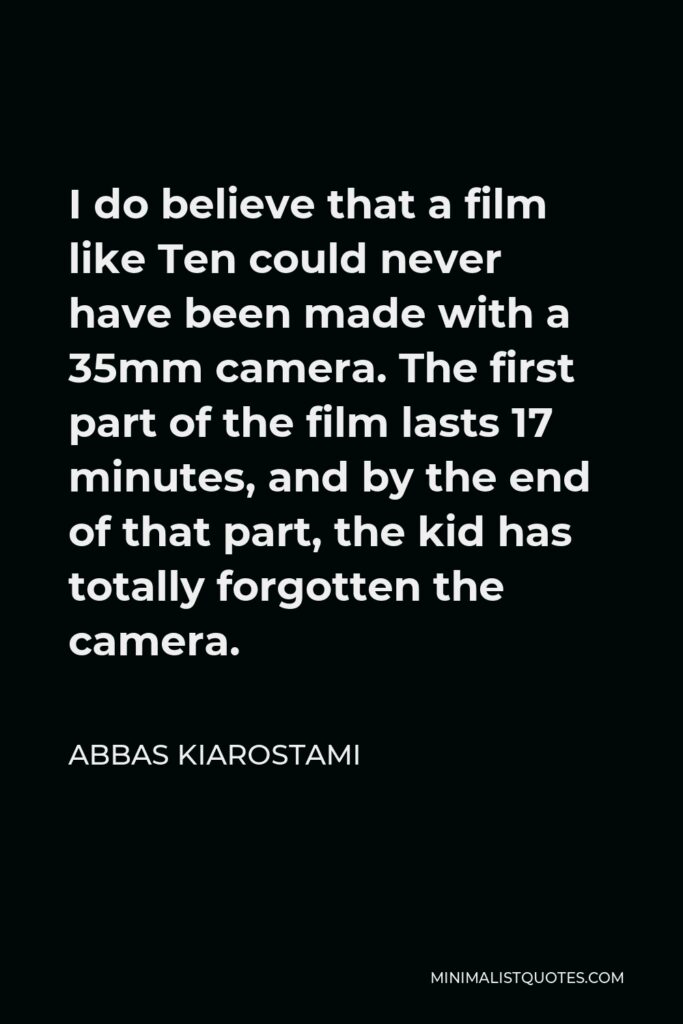

I do believe that a film like Ten could never have been made with a 35mm camera. The first part of the film lasts 17 minutes, and by the end of that part, the kid has totally forgotten the camera.
ABBAS KIAROSTAMI -





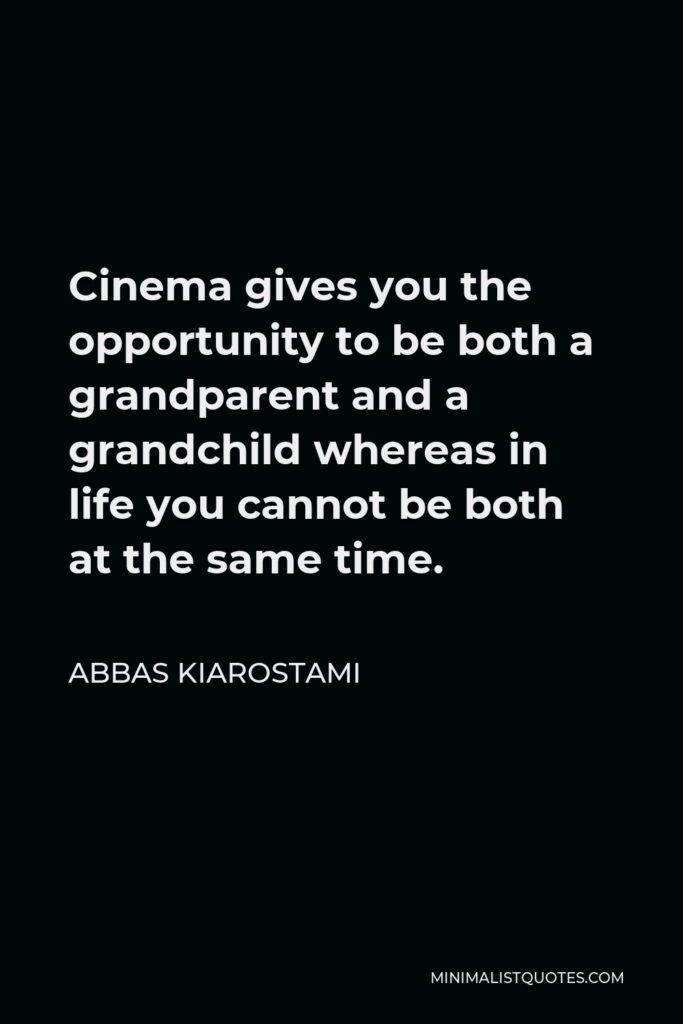

Cinema gives you the opportunity to be both a grandparent and a grandchild whereas in life you cannot be both at the same time.
ABBAS KIAROSTAMI -





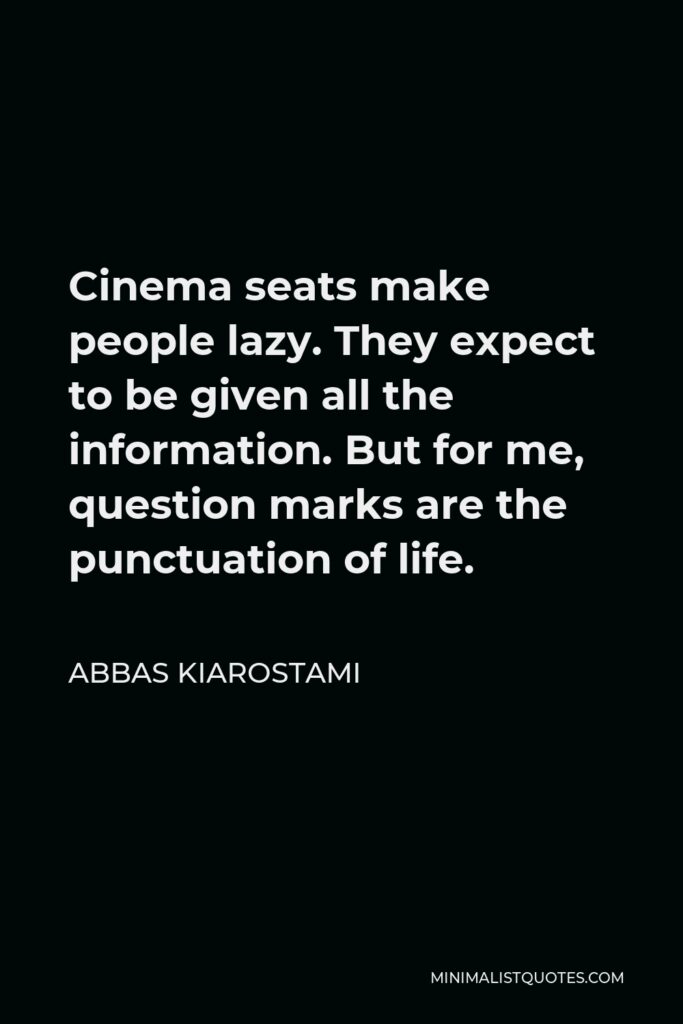

Cinema seats make people lazy. They expect to be given all the information. But for me, question marks are the punctuation of life.
ABBAS KIAROSTAMI -





![Abbas Kiarostami Quote - The film [Close Up] made itself, to a large extent. The characters involved were very real, I wasn’t directing the actors so much as being directed by them. So it was a very particular film.](https://minimalistquotes.com/wp-content/uploads/2022/04/the-film-close-up-made-itself-to-a-large-extent-th-683x1024.jpg)

The film [Close Up] made itself, to a large extent. The characters involved were very real, I wasn’t directing the actors so much as being directed by them. So it was a very particular film.
ABBAS KIAROSTAMI -





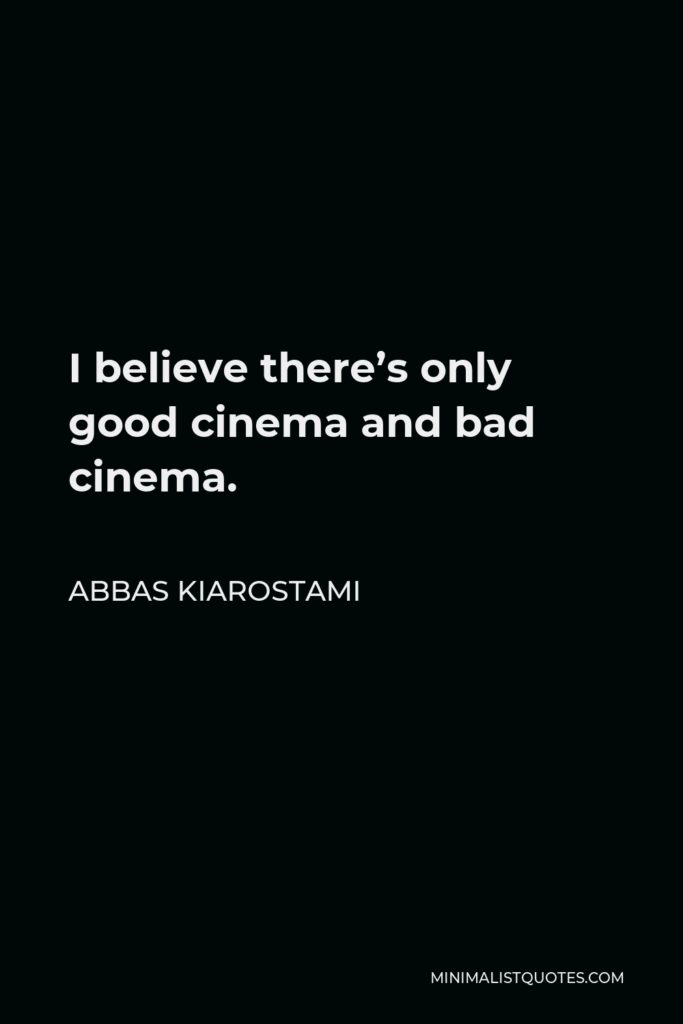

I believe there’s only good cinema and bad cinema.
ABBAS KIAROSTAMI -





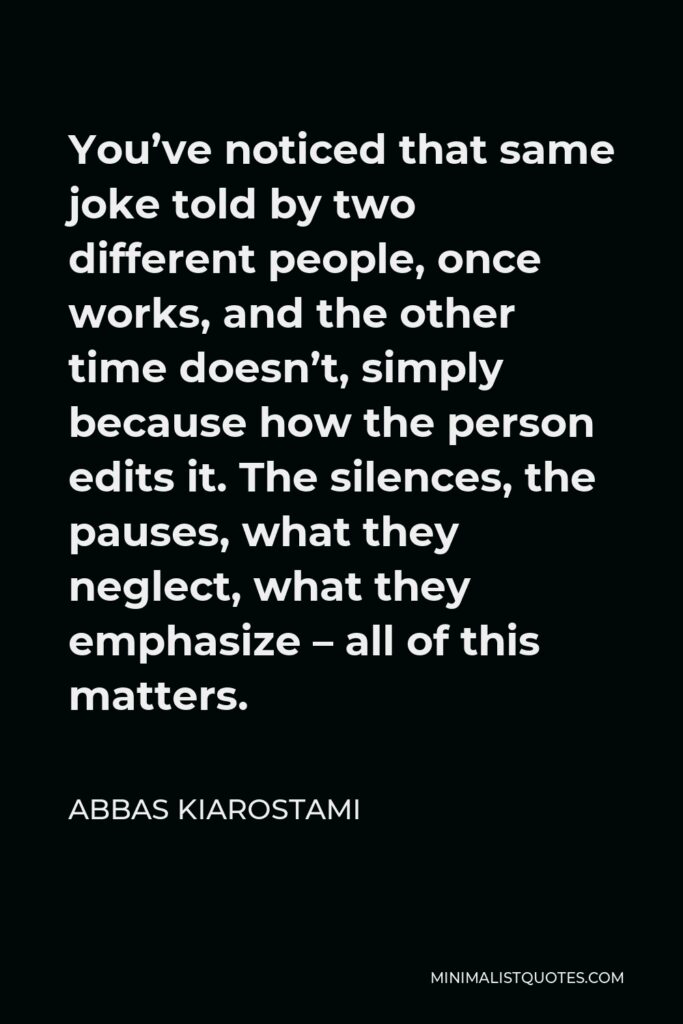

You’ve noticed that same joke told by two different people, once works, and the other time doesn’t, simply because how the person edits it. The silences, the pauses, what they neglect, what they emphasize – all of this matters.
ABBAS KIAROSTAMI -





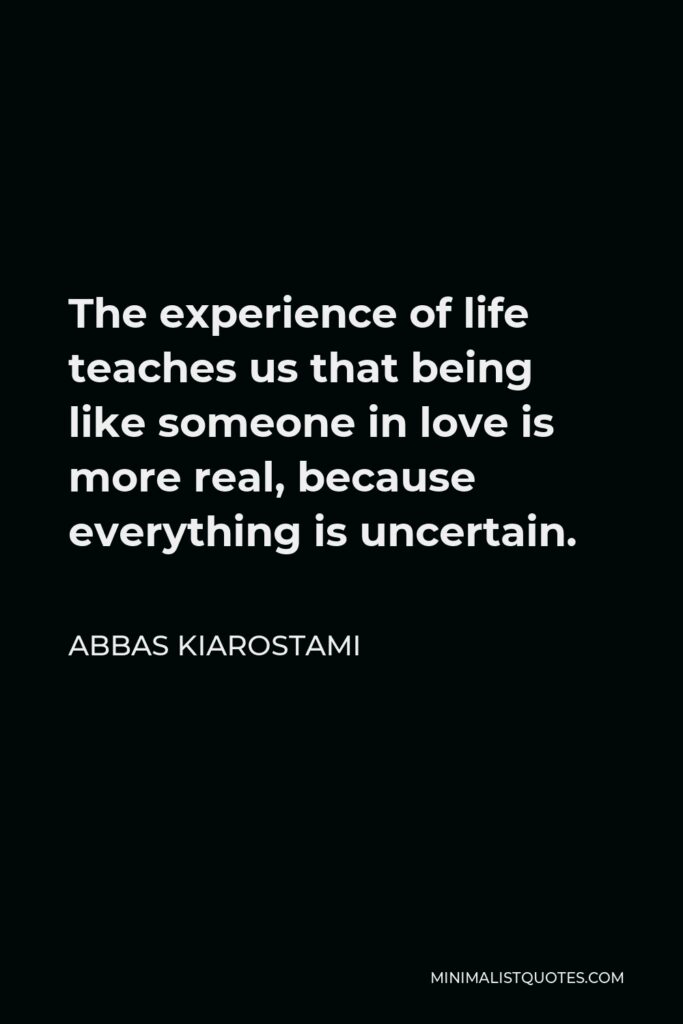

The experience of life teaches us that being like someone in love is more real, because everything is uncertain.
ABBAS KIAROSTAMI -





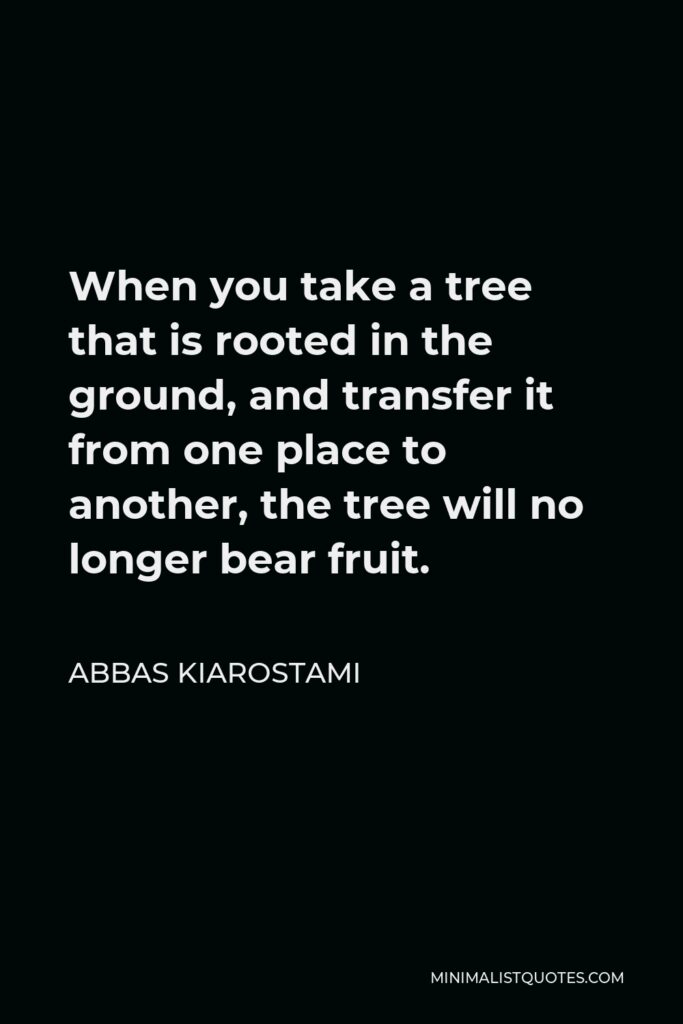

When you take a tree that is rooted in the ground, and transfer it from one place to another, the tree will no longer bear fruit.
ABBAS KIAROSTAMI -





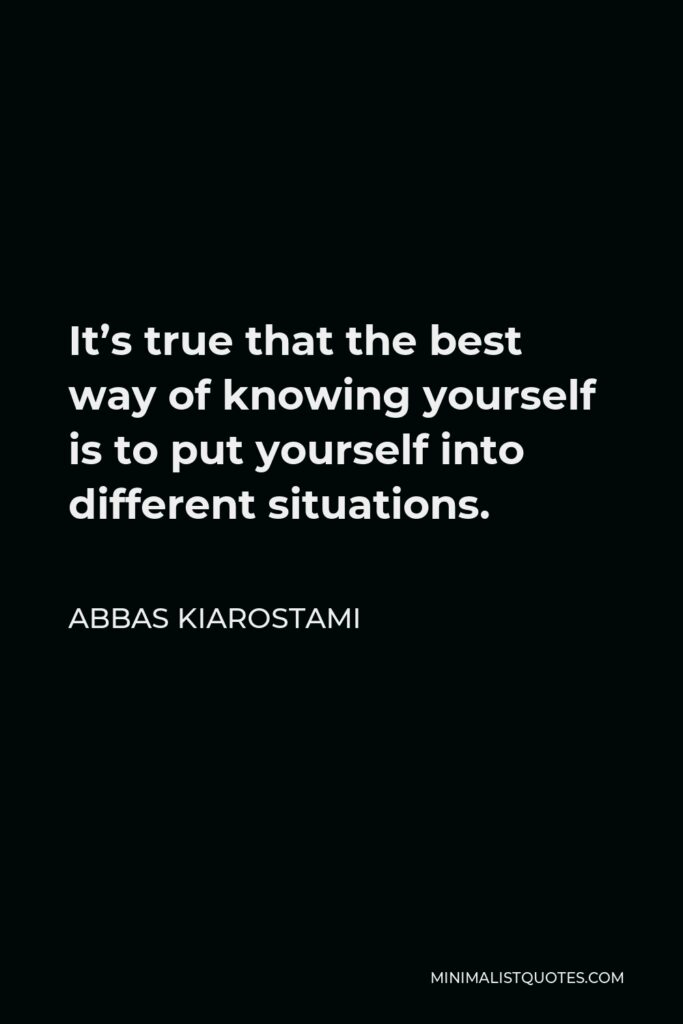

It’s true that the best way of knowing yourself is to put yourself into different situations.
ABBAS KIAROSTAMI
